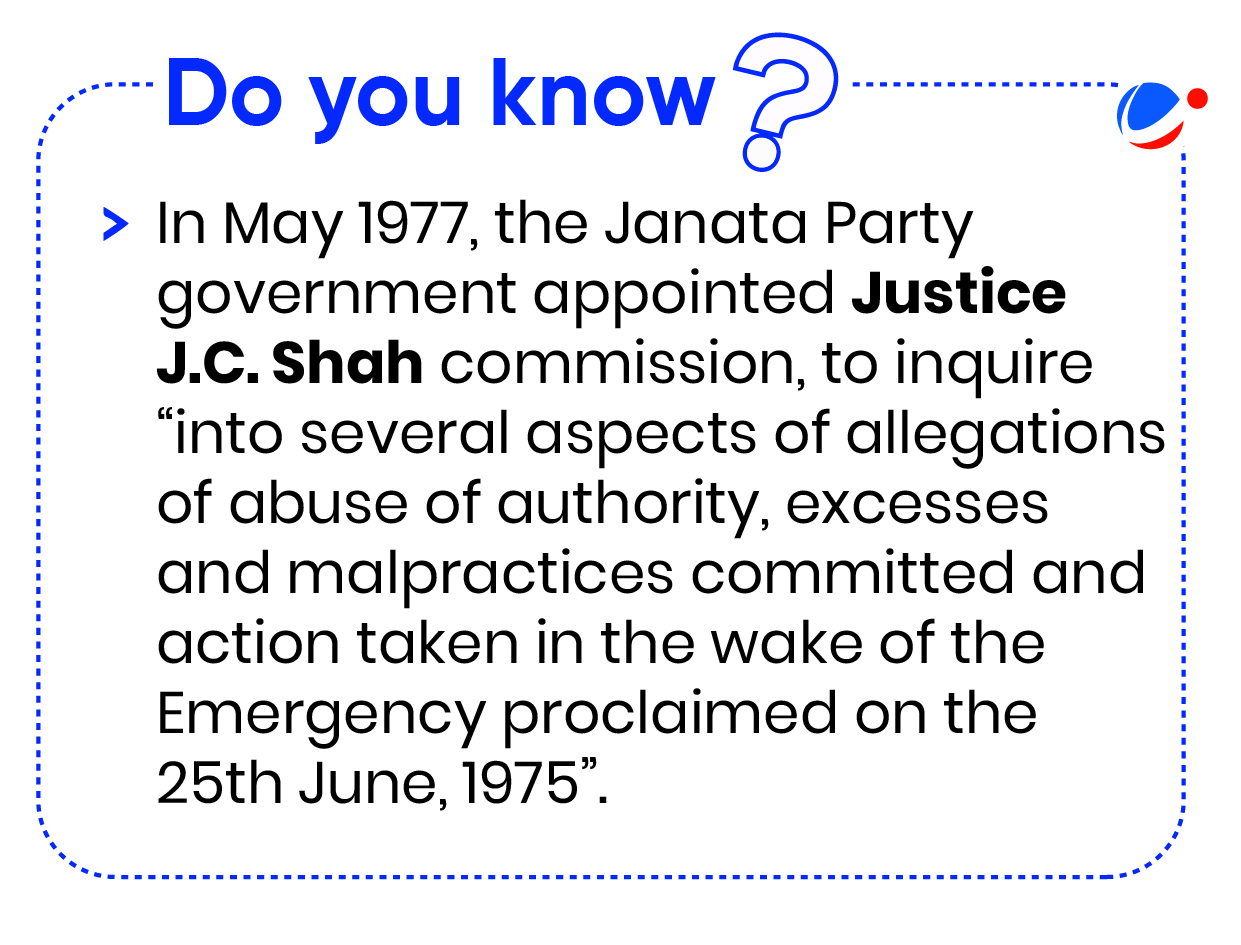Why in the news?
The year 2024 marks the beginning of the 50th year since the imposition of internal Emergency on June 25, 1975.
About Emergency
- Emergency is a situation when democratic rights of people are suspended, and central government assumes powers over state governments.
- Suspension of fundamental rights during emergency was incorporated from Weimar Constitution of Germany.
- Emergency Provisions are outlined in Article 352 to Article 360 under Part XVIII of Constitution.
- Rationale behind the incorporation of these provisions is to safeguard sovereignty, unity, integrity and security of country, democratic political system, and Constitution.
Types of Emergencies
- National Emergency: President may, on advice of Cabinet headed by Prime Minister, issue a proclamation of emergency if security of India or any part of country is threatened by "war or external aggression (external emergency) or armed rebellion" (Internal Emergency). (Article 352).
- Till now, three times an emergency has been imposed in India i.e., 1962, 1971 on the grounds of war (India-China; India- Pakistan), and 1975 due to an internal disturbance.
Note: This ground of "internal disturbance" was substituted by "armed rebellion" by Constitution (44th Amendment) Act, 1978.
- President's Rule (State or Constitutional Emergency): An emergency due to failure of constitutional machinery in states. (Article 356)
- Financial Emergency: Due to threat to financial stability or credit of India or of any part of territory. (Article 360).
Procedure of Proclamation of Emergency
Approval
- It must be approved by both houses of Parliament within one month from date of its issue.
- If approved by both houses, Emergency continues for 6 months and can be extended to an indefinite period with an approval of the Parliament for every six months. (44th Amendment Act 1978)
- If the dissolution of Lok Sabha takes place during period of six months without approving further continuation of the emergency, then proclamation survives until 30 days from first sitting of Lok Sabha after its reconstitution, provided Rajya Sabha in the meantime approved its continuation.
- Every resolution approving the proclamation of emergency, or its continuance must be passed by either House of Parliament by a special majority. (44th Amendment Act 1978)
Revocation
- Revoked by President at any time by a subsequent proclamation. Such proclamation does not require parliamentary approval.
- Resolution for disapproval of continuation of National Emergency is required to be passed by Lok Sabha by simple majority.
Reasons for imposing Internal Emergency (1975-77)
- Economic context: Prices increased by 23 per cent in 1973 and 30 per cent in 1974. Such a high level of inflation caused much hardship to the people.
- Gujarat and Bihar movements: Students' protests in Gujarat and Bihar had far reaching impact on the politics of the two States and national politics.
- Conflict with Judiciary: This was also the period when the government and the ruling party had many differences with the judiciary such as appointment of Justice A. N. Ray as the Chief Justice of India.
Implications/Criticism of imposing Internal Emergency (1975-77)
Political Impact
- Suspension of Civil Liberties: Government gets the power to curtail or restrict all or any of the Fundamental Rights during the emergency.
- Newspapers were subjected to pre-censorship. Press Council was abolished, and many journalists, activists were imprisoned.
- Centralization of power: Practically suspended federal distribution of powers and all the powers are concentrated in the hands of union government (Prime Minister Office). Thus, altering legislative power of states.
- 42nd Constitutional Amendment Act (CAA), 1976 extended duration of Lok Sabha from five to six years.
- Crackdown on Dissent: Opposition leaders were arrested without trial under laws like Maintenance of Internal Security Act, 1971 (MISA).

Social Impact
- Misuse of Power: There was widespread torture, custodial deaths, authoritative slum clearance drives were conducted in major cities without adequate resettlement plans, displacing thousands of people.
- Impact on organisations: Religious and cultural organizations like Rashtriya Swayamsevak Sangh, Jamaat-E-Islami, etc. were banned on apprehension of disturbance to social and communal harmony.
- Forced Sterilizations: The push for population control and family planning intersected with citizens' rights to personal autonomy and reproductive freedom.
Institutional Impact
- Judicial Independence: Independence of judiciary was compromised, with judges who were perceived as unsupportive of government being transferred or side-lined.
- Government introduced 42nd constitutional amendment act, 1976 aimed at limiting scope of judicial review.
- Erosion of trust: Arbitrary use of powers during Emergency eroded citizens' trust in governmental institutions.
Changes brought after Internal Emergency through 44th Amendment Act, 1978
- Written approval: Emergency can be proclaimed only on basis of written advice by Cabinet to President.
- Fundamental Rights: Restricted scope of Article 359 i.e. Right to protection in respect of conviction for offences (Article 20) and right to life and personal liberty (Article 21) remain enforceable during emergency.
- It omitted right to property as a fundamental right and made it a constitutional right under Article 300A.
- Term of Lok Sabha: Back to 5 years from 6 years by amending Articles 83 and 172.
- Removal of Article 257A: It dealt with power Government of India to deploy any armed force of Union or any other force to deal with any grave situation of law and order in any State.
- Judicial review: All doubts and disputes arising out of or in connection with election of a President or Vice-President shall be inquired into and decided by Supreme Court.
Conclusion
The suppression of dissent and curtailment of civil liberties during the Emergency underscore the citizens' role in safeguarding democracy. Further, there is need to strengthen checks and balances within the democratic framework to prevent concentration of power and uphold democratic principles







